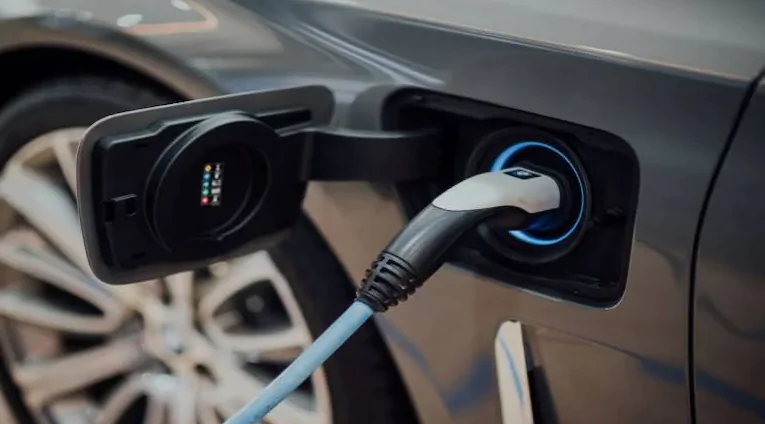CCS Type 1 Charging For A Seamless Ev Experience

As the world embraces the transition to electric vehicles (EVs), the importance of robust charging infrastructure cannot be understated. The convenience and accessibility of charging options play a crucial role in ensuring a seamless EV ownership experience.
One charging standard that has gained significant traction in North America and Japan is Ccs Type 1 (also known as CCS1 or SAE J1772 Combo). In this article, we will explore CCS Type 1 charging, its evolution, various charging modes, benefits, and future outlook.
Understanding CCS Type 1 Charging
CCS Type 1 charging is a complete charging standard that integrates Level 1 AC charging, Level 2 AC charging, and DC fast charging into a single connector. It allows EV owners to charge their vehicles using a variety of power sources.
A CCS Type 1 connector typically comprises a conventional J1772 AC charging connector and an additional two-pin DC charging connector. The J1772 connector is utilised for Level 1 and Level 2 charging, while the two-pin DC connector is used for DC rapid charging.
The Evolution Of CCS Type 1
CCS Type 1 has gone through a significant evolution since its inception. The standardization efforts were driven by industry collaboration, aiming to create a unified charging standard that is compatible with various EV models. Over the years, advancements and updates have been made to enhance the charging capabilities and interoperability of CCS Type 1.
The early stages of CCS Type 1 saw the integration of the J1772 AC charging connector, which had already gained popularity as the standard connector for Level 1 and Level 2 charging. By incorporating the J1772 connector, CCS Type 1 ensured backward compatibility with existing EV charging infrastructure.
CCS Type 1 Charging Modes
CCS Type 1 charging options include Level 1, Level 2, and DC fast charging.
- Level 1 Charging
Level 1 charging is the slowest manner of charging and is commonly performed using a conventional domestic electrical socket. Level 1 charging is ideal for charging overnight at home or for longer durations of stationary charging at work. It is regarded as the most fundamental and widely available charging option for EV customers.
- Level 2 Charging
Level 2 chargers necessitate the installation of a dedicated charging station or a specialized EV charging unit at home or public charging stations. EVs can add roughly 25-30 miles of range per hour with Level 2 charging, making it suitable for longer periods of charging while parked, such as overnight or during work hours.
- DC Fast Charging
DC fast charging, also known as Level 3 charging. DC fast chargers are typically found at public charging stations and provide significantly higher charging power than Level 1 and Level 2 chargers. The charging rate can vary depending on the specific charger and EV capability, but it can add around 60-80 miles of range in just 20-30 minutes.
Benefits of CCS Type 1 Charging
CCS Type 1 charging offers several benefits for electric vehicle (EV) owners. Here are some of the key advantages of CCS Type 1 charging:
- Versatility and Compatibility
CCS Type 1 charging is compatible with a wide range of EV models. Whether you own a compact car, a sedan, or an SUV, chances are it can be charged using CCS Type 1. This compatibility makes CCS Type 1 a versatile choice for EV owners, providing a standardized charging solution across different brands and models.
- Multiple Charging Modes
CCS Type 1 supports various charging modes, including Level 1, Level 2, and DC fast charging. This flexibility allows EV owners to choose the charging mode that best suits their needs. Whether you need a slow overnight charge, a faster charge at home or work, or a rapid top-up during a long journey, CCS Type 1 offers the necessary options.
- Faster Charging Speeds
With CCS Type 1, EV owners have access to faster charging speeds compared to Level 1 charging. Level 2 charging, available through CCS Type 1, provides higher power outputs and faster charging rates, allowing for quicker replenishment of the EV’s battery. This is particularly advantageous for longer trips or situations where a faster recharge is needed.
- DC Fast Charging Capability
One of the most important advantages of CCS Type 1 is its capability for DC rapid charging. DC fast charging stations using CCS Type 1 connector may supply high charging power, allowing EVs to be recharged quickly. EV users may add significant range in a short period with DC fast charging, making long-distance travel more viable and convenient.
- Expanded Charging Infrastructure
The infrastructure for CCS Type 1 charging has been progressively increasing in many regions, particularly in North America and Japan. The expanding network of CCS Type 1 charging stations provides EV users with more options for charging their vehicles. The accessibility of owning an EV is enhanced by the availability of charging infrastructure.
- Future-Proofing
CCS Type 1 charging is still evolving, with continual attempts to enhance charging speeds, expand the charging network, and offer charging technology breakthroughs. EV owners can benefit from these future advances and ensure their vehicles remain compatible with the expanding charging infrastructure by adopting CCS Type 1.
Conclusion
CCS Type 1 charging has emerged as a reliable and versatile charging standard for electric vehicles. Its ability to offer different charging modes, including DC fast charging, provides EV owners with the flexibility and convenience needed for daily commutes and longer trips.





